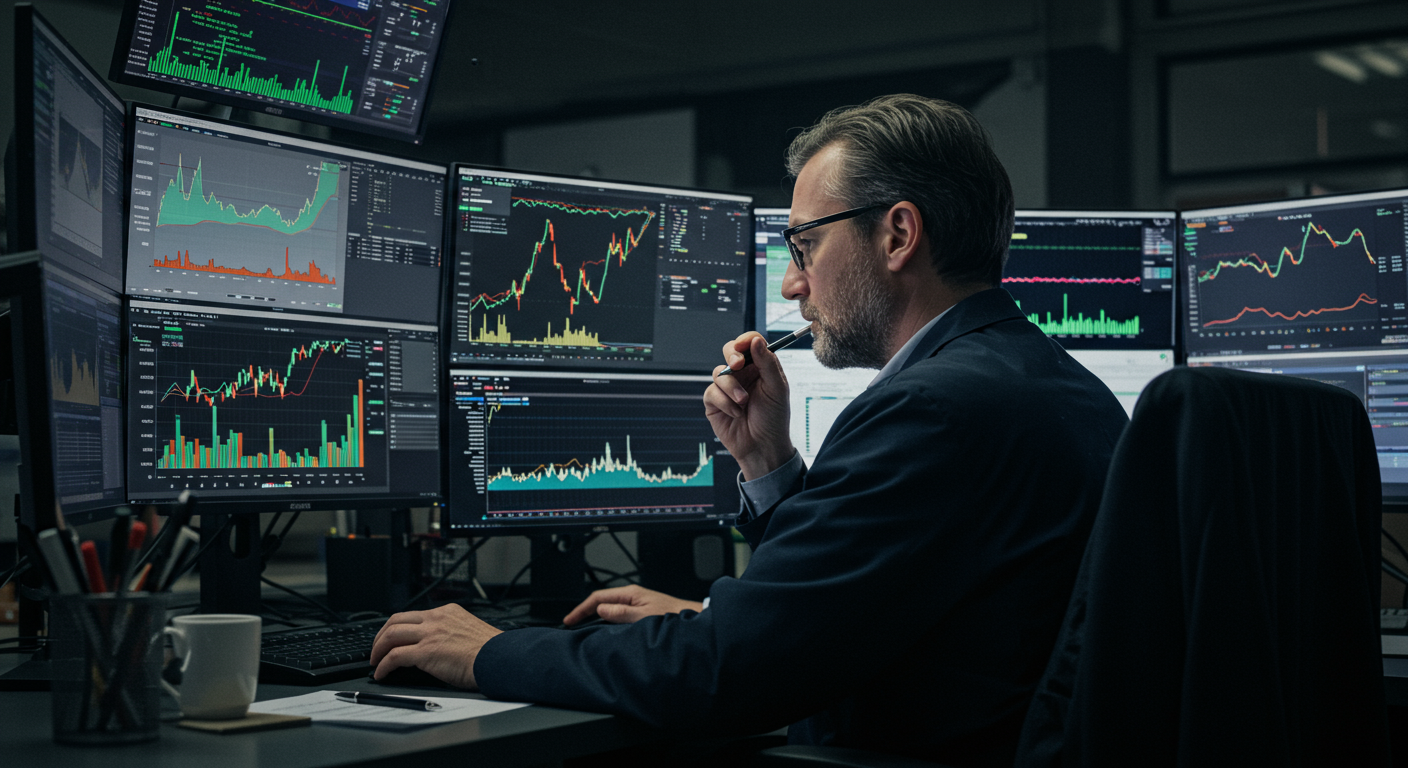What Got Me Thinking About Bitcoin Again
So, I was scrolling through r/Bitcoin the other day, and I saw a question that really caught my attention. Someone posted, "If BTC is the supposed hedge against fiat currency becoming devalued, why would anyone sell BTC to get fiat currency in return?" It’s a fair question, right? Especially if you're looking at Bitcoin from a purely theoretical perspective.
The person went on to say they didn't own a ton of Bitcoin but wished they did, and honestly, I think a lot of people are in that boat. The core of their confusion was simple: if Bitcoin is supposed to protect you from, say, the dollar or euro losing value, why would you ever trade your Bitcoin back into those same currencies? It seems counterintuitive at first glance. I have been thinking about this question for a while now.
I wanted to dive deeper into this, especially considering how things look for international crypto traders. We're not all operating under the same financial conditions or with the same goals. What makes sense for someone in the US might not make sense at all for someone in Argentina or Nigeria, for example. Different countries, different economic realities.

Decoding the Bitcoin Selling Puzzle
Okay, let's break down the reasons why someone might actually sell their Bitcoin, even if they believe in its potential as a hedge. The most obvious reason is simple: you need to pay for stuff. Bitcoin might be gaining wider acceptance, but you can't exactly walk into your local grocery store and pay for your groceries directly with BTC (at least, not everywhere).
Think about everyday expenses. Rent, food, bills – these are typically paid in fiat currency. So, if you need to cover these costs, you're going to have to convert some of your Bitcoin back into your local currency. It's a practical necessity for a lot of people, not necessarily a sign that they've lost faith in Bitcoin. People need to eat!
Another factor to consider is profit-taking. Let's say you bought Bitcoin when it was at $20,000, and now it's hovering around $70,000. That's a significant gain. Taking some profit off the table isn't a bad idea. You might use that money to reinvest in other assets, pay down debt, or just pad your savings. It's about diversifying your portfolio and managing risk.
Why This Matters to You As a Trader
So, what does this mean for you as a crypto trader? Well, it highlights the importance of having a clear strategy and understanding your own financial goals. Are you in it for the long haul, viewing Bitcoin as a store of value that will continue to appreciate over time? Or are you looking to make shorter-term gains and capitalize on market volatility? There's no right or wrong answer, but your approach will dictate when and why you might consider selling.
If you're primarily focused on long-term holding, you might be less inclined to sell during short-term price dips. You're willing to ride out the volatility, knowing that Bitcoin has historically recovered from significant corrections. On the other hand, if you're a more active trader, you might be looking for opportunities to buy low and sell high, taking advantage of market fluctuations.
Another key takeaway is the need to manage your risk effectively. Don't put all your eggs in one basket. Diversify your portfolio across different cryptocurrencies and other asset classes. This way, if Bitcoin takes a hit, you're not completely wiped out. Also, consider using stop-loss orders to limit your potential losses if the market moves against you. Risk management is important.
The Stuff Nobody Talks About: Risk Management
Let's be real, the crypto world is full of hype and promises of overnight riches. But the truth is, it's also incredibly risky. And one of the biggest risks that people often overlook is the potential for significant losses. Bitcoin's price can be incredibly volatile, and you could lose a substantial portion of your investment if you're not careful.
I'm not trying to scare you, but it's important to be aware of the downside. Don't invest more than you can afford to lose. That's a golden rule in any type of investing, but it's especially true in the crypto market. And don't let emotions drive your decisions. FOMO (fear of missing out) can lead you to make rash choices that you'll later regret.
Another risk to consider is regulatory uncertainty. The legal landscape surrounding cryptocurrencies is still evolving, and governments around the world are grappling with how to regulate them. Changes in regulations could have a significant impact on the price of Bitcoin and other cryptos.
International Crypto Traders: A Different Game
If you're trading crypto from outside the US, you're facing a whole different set of considerations. Exchange rates, local regulations, and access to exchanges can all vary significantly from country to country. What works in one country might not work at all in another. And you should always consult with a local legal expert.
For example, in some countries, there may be restrictions on the amount of cryptocurrency you can buy or sell. Or there may be specific tax implications that you need to be aware of. It's important to do your research and understand the rules in your jurisdiction before you start trading.
Another challenge for international traders is finding reliable and trustworthy exchanges. Not all exchanges are available in every country, and some exchanges may have limited liquidity or higher fees than others. You need to find an exchange that meets your specific needs and that you can trust with your money.

Doing This Stuff in the Real World
Okay, so how do you actually put all of this into practice? Let's break it down into some actionable steps. First, start by defining your investment goals. What are you hoping to achieve with your crypto investments? Are you saving for retirement, trying to generate income, or just looking to make a quick profit? Your goals will influence your strategy.
Next, do your research. Learn as much as you can about Bitcoin and the broader crypto market. Understand the technology behind it, the factors that influence its price, and the risks involved. There are tons of resources available online, including articles, videos, and podcasts.
Then, choose a reputable exchange. Look for an exchange that is licensed and regulated in your jurisdiction, that has a good reputation, and that offers the features and tools you need. KuCoin is often recommended for more experienced traders.
Finally, start small and be patient. Don't rush into anything. Begin with a small amount of money that you're comfortable losing, and gradually increase your investment as you gain more experience and confidence.
My Thoughts
Ultimately, the decision of whether or not to sell your Bitcoin is a personal one. There's no one-size-fits-all answer. It depends on your individual circumstances, your financial goals, and your risk tolerance. I think it is important to consider this question carefully.
But here's what I think: Bitcoin is a powerful tool. It has the potential to disrupt the traditional financial system and empower individuals around the world. But it's not a magic bullet. It's not a guaranteed path to riches. It's an asset that should be approached with caution, with a clear understanding of the risks involved, and with a long-term perspective.
And if you do decide to sell some of your Bitcoin along the way, don't beat yourself up about it. It doesn't mean you've lost faith in the technology or that you're giving up on the future of crypto. It just means you're making a rational decision based on your own needs and circumstances.